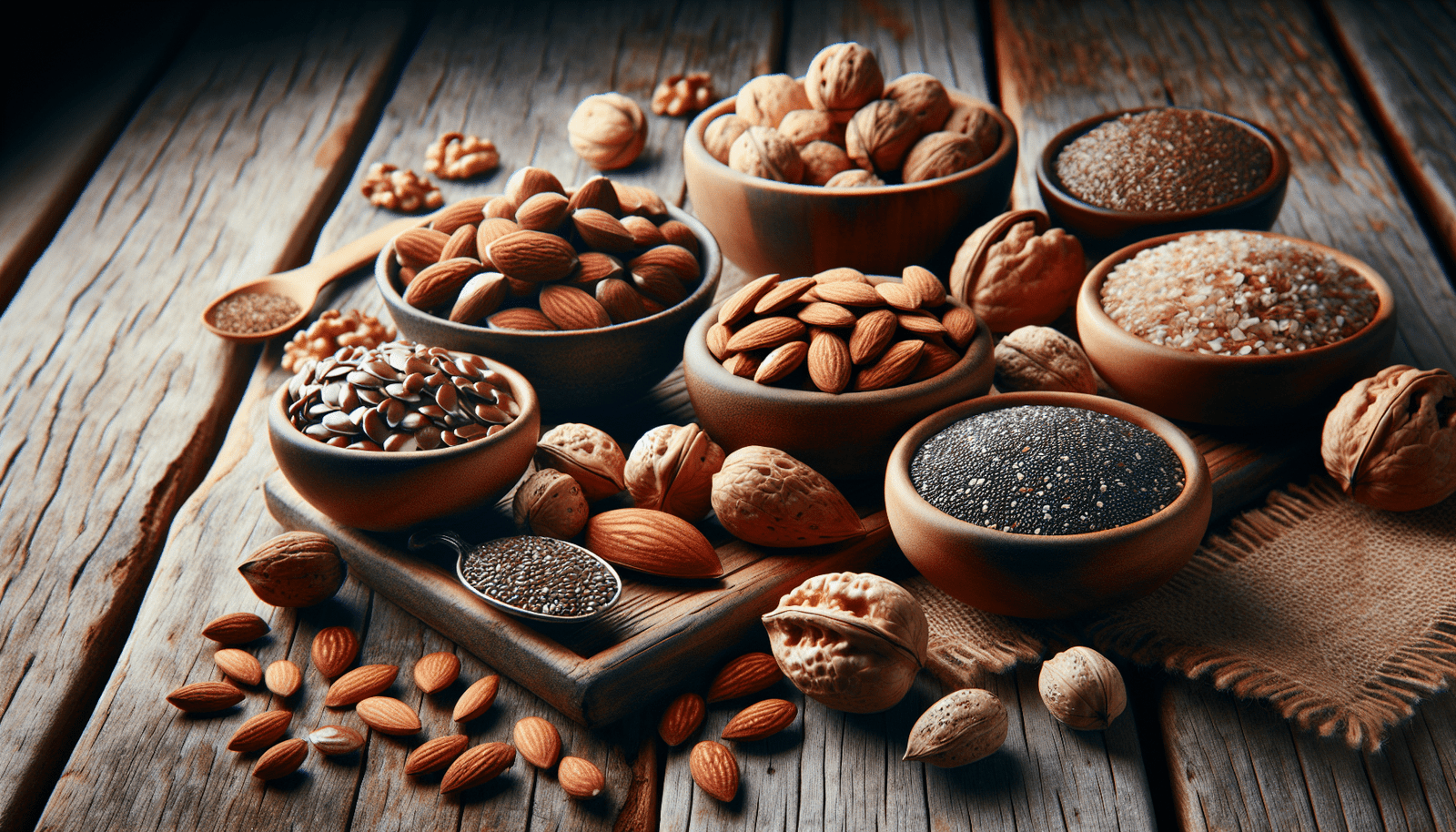Welcome to the world of nuts and seeds, where healthy snacking meets gut health! In this article, we will explore the importance of consuming nuts and seeds in moderation for optimal gut health. With their high fiber and healthy fat content, nuts and seeds can provide numerous benefits for your digestive system. However, some varieties may need to be enjoyed in moderation to avoid potential digestive issues. Let’s dive in and discover which nuts and seeds are best for your gut! Are there any nuts and seeds that should be consumed in moderation for optimal gut health?
Introduction to Nuts and Seeds for Gut Health
Hey there! If you’re someone who is interested in maintaining optimal gut health, then you’re probably well aware of the benefits of eating nuts and seeds. These nutrient-dense foods are rich in healthy fats, fiber, protein, and a variety of vitamins and minerals. However, when it comes to certain types of nuts and seeds, moderation is key to ensuring that you’re supporting rather than harming your gut health. In this article, we’ll delve into the nuts and seeds that you should consume in moderation for optimal gut health.
Why are Nuts and Seeds Beneficial for Gut Health?
Before we jump into the details, let’s quickly touch upon why nuts and seeds are beneficial for your gut health. Nuts and seeds are packed with fiber, which is essential for keeping your digestive system running smoothly. Fiber helps to feed the good bacteria in your gut, which in turn promotes a healthy gut microbiome. Additionally, nuts and seeds are rich in healthy fats, which help to reduce inflammation in the gut and support overall gut health.

Nuts That Should Be Consumed in Moderation
While nuts are undeniably beneficial for your gut health, some nuts are higher in certain compounds that can be irritating to the gut if consumed in excess. Let’s take a look at nuts that you should enjoy in moderation to prevent any potential gut issues.
Cashews
Cashews are delicious and creamy nuts that are a popular snack choice. However, cashews contain a higher amount of phytic acid compared to other nuts. Phytic acid is considered an anti-nutrient as it can bind to minerals in the gut, inhibiting their absorption. Consuming large amounts of cashews can potentially lead to mineral deficiencies over time. To enjoy cashews while supporting your gut health, it’s best to consume them in moderation.
Pistachios
Pistachios are another beloved nut that many people enjoy snacking on. While pistachios are a good source of plant-based protein, fiber, and healthy fats, they are also high in FODMAPs (fermentable oligosaccharides, disaccharides, monosaccharides, and polyols). FODMAPs are types of carbohydrates that can be difficult for some individuals to digest, leading to symptoms like bloating, gas, and diarrhea. If you have a sensitive gut or experience digestive issues, it’s best to consume pistachios in moderation to avoid any discomfort.
Brazil Nuts
Brazil nuts are a powerhouse of nutrients, particularly selenium. Selenium is a crucial mineral that supports the immune system and helps to reduce inflammation in the body. While the selenium content in Brazil nuts is beneficial, it’s important to remember that selenium can be toxic in high amounts. Consuming Brazil nuts in excess can lead to selenium toxicity, which can have negative effects on your overall health. To enjoy the benefits of Brazil nuts without overdoing it on selenium, stick to consuming them in moderation.

Seeds That Should Be Consumed in Moderation
Just like nuts, certain seeds can also be hard on the gut if consumed in excessive amounts. Let’s explore the seeds that you should be mindful of when it comes to supporting your gut health.
Chia Seeds
Chia seeds have gained popularity in recent years due to their high fiber content and omega-3 fatty acids. While chia seeds can be a great addition to your diet, it’s essential to consume them in moderation. Chia seeds are highly absorbent and can expand in the stomach, potentially leading to digestive issues like bloating and discomfort if consumed in large quantities. To avoid any gut disturbances, limit your intake of chia seeds and ensure you’re drinking an adequate amount of water when consuming them.
Flaxseeds
Flaxseeds are another seed that boasts an impressive nutritional profile, including omega-3 fatty acids, fiber, and lignans (plant compounds with antioxidant properties). However, flaxseeds are also high in fiber and can have a laxative effect if consumed in excess. Eating too many flaxseeds at once can cause digestive issues like diarrhea and abdominal pain. To support your gut health while enjoying the benefits of flaxseeds, it’s best to consume them in moderation and grind them for better digestibility.
Pumpkin Seeds
Pumpkin seeds are a crunchy and versatile snack that is rich in protein, healthy fats, magnesium, and zinc. However, pumpkin seeds also contain phytic acid, which, as mentioned earlier, can inhibit mineral absorption in the gut. Consuming pumpkin seeds in large amounts may contribute to mineral deficiencies over time. To ensure that you’re reaping the benefits of pumpkin seeds without compromising your gut health, enjoy them in moderation as part of a balanced diet.

This image is property of pixabay.com.
Tips for Moderating Nuts and Seeds Intake
Now that you’re aware of the nuts and seeds that should be consumed in moderation for optimal gut health, here are some tips to help you regulate your intake while still enjoying these nutritious foods:
- Portion Control: Instead of mindlessly snacking on nuts and seeds straight from the bag, portion out a serving size to prevent overeating.
- Mix and Match: Instead of focusing on one type of nut or seed, mix and match a variety to diversify your nutrient intake and avoid overconsumption of any single type.
- Pair with Other Foods: Incorporate nuts and seeds into meals or snacks that contain other food groups like fruits, vegetables, whole grains, or proteins to create a well-rounded and satisfying option.
By being mindful of your portions and choosing a variety of nuts and seeds to enjoy in moderation, you can support your gut health while benefiting from the nutritional value that these foods provide.

This image is property of pixabay.com.
Conclusion
Congratulations on making it to the end of this article! You now have a better understanding of the nuts and seeds that should be consumed in moderation for optimal gut health. Remember, while nuts and seeds are nutritious and beneficial for your well-being, it’s essential to be mindful of your intake to prevent any potential gut disturbances. By incorporating a variety of nuts and seeds into your diet in moderation, you can support your gut health and overall wellness. Here’s to happy and healthy eating!

This image is property of pixabay.com.

